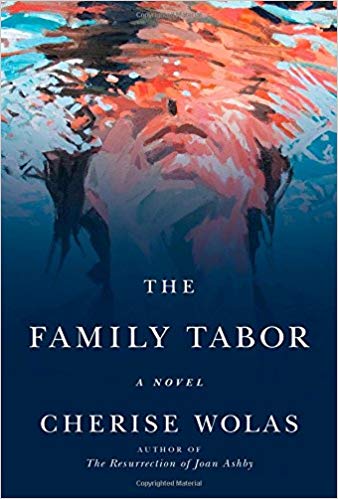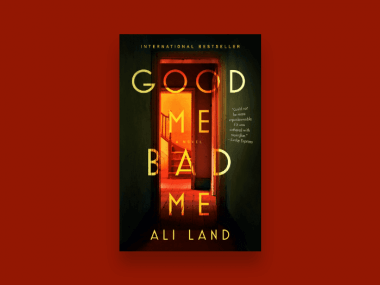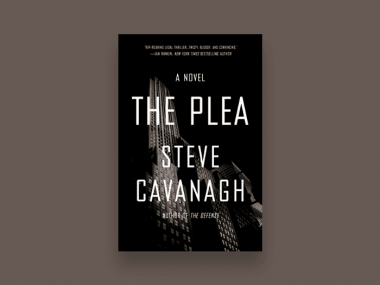Grammar Quirks: Cherise Wolas on Cauliflowers and Cacophony
Grammar Girl talks with acclaimed writer Cherise Wolas, author of The Family Tabor, about creating voices for fictional people, her interpretation of the origin of the word “cauliflower,” and her quest to use every word in the English dictionary.
Grammar Girl talks with Cherise Wolas, author of The Family Tabor and The Resurrection of Joan Ashby, about grammar, her imaginative interpretation of the word “cauliflower,” and the stubborn spelling of “cacophony.”
Grammar Girl: What’s your favorite word and why?
Cherise Wolas: I love words so much, it would be sacreligious to have a favorite one.
That being said, each time I find the exact word that perfectly and precisely suits what I’m writing, that word becomes my favorite word, until I am on the hunt again for the next perfect word, which then becomes my favorite word, and on it goes.
I do, however, have a special fondness for words that make one wonder how they came into being. I could look up their etymologies, but I much prefer letting loose my imagination. Cauliflower, for example, defines a cabbage variety, but I prefer thinking that cauli references something mystical. And the second part of the word comes as a delightful surprise, and if you’re unhappy, say “flower” aloud, and for a while, your troubles will float away, unless, of course, you have to eat the cauliflower, and are like me, lacking absolutely no yen for it at all.
Ranunculus is another example. It’s a chewy word and sounds like something that could be very ugly, misshapen, perhaps a kind of pestilence, or a gaping oozing wound, and yet ranunculus is the genus of more than 500 species of flowering plants. And flowering plants are pretty and can lighten a mood, and bring smiles to faces. This seems to be a thematic response. For something to be a theme, I wonder, does it require more than two examples?
GG: What’s a word you dislike (either because it’s overused or misused) and why?
Buy Now

CW: It is against my writer’s nature to dislike any word. Instead, I blame the humans who overuse and misuse too many words, who do not read with intent so as to learn new words and look them up, who spit out old standby words in situations where those standbys really do not apply. I have sent many people I wholeheartedly love vocabulary-builder books, because their linguistic insolvency cannot be my burden forever.
I do loathe most un-creative slang and swear words, in every day speech or in writing, although a well-placed fuck slinging into the air or dashed down on the page can have enormous pizzazz.
GG: What word will you always misspell?
CW: It’s a fact that I’ve always been a fantastic speller. The last word that boggled me, despite all my early-age advanced reading, was cacophony. It sat there harshly, loudly, so screamingly noisy on my SAT test, and I hadn’t a clue what it was or meant. I had never seen it before. As soon as I got home, I looked it up. My answer has to do with meaning, but had I only heard cacophony, I don’t know that I would have spelled it correctly, although I had a crack primary-school education where the teachers taught us how to sound out words, and I took to that beautifully. I am always looking up words (and thereby see how they are spelled), seeking their meanings, seeking the unexpected, seeking to open my mind, to churn new thoughts and ideas into being, and perhaps to employ those unexpected words as I want to and at will.
However, my parents, whom I love and adore, boggle my mind because, despite being highly educated, they seem not to know how to spell congratulations. Lately, luckily, in connection with The Resurrection of Joan Ashby, published last year, and now with the very recent publication of The Family Tabor, they have sent me many congratulatory missives, delighting me, of course, and yet it takes the mammoth will-power of a loving offspring to not send their missives back with the offending word—congradulations—corrected.
GG: What word (or semblance of a word) would you like to see added to the dictionary? Why?
CW: The English language might be the most populous in the world. We have so many marvelous words that are going unloved. Until I effectively and poetically use every last one, I don’t feel the need to create a new one.
GG: Any grammar pet peeves we should know about?
CW: My personal peeve has to do with the fact that my knowledge of grammar has become so embedded in me, so automatic in the way I use it, that I would have no ability to explain to anyone the whys of any of it. And when I hear someone explain some grammatical rule, it’s as incomprehensible to me as a math problem.
The books I read have beauty at the sentence level, and so I’m rarely grammatically peeved when reading the works of others.
GG: To what extent does grammar play a role in character development and voice?
CW: The deep-diving I do into the marrows of the people in my novels—I never call them characters because they are completely real and alive to me—organically creates their unique voices, their specific cadences of thought and speech, which includes how they grammatically express themselves. The particular voices come naturally, but then I work very, very, very hard to get each voice absolutely right; every interiority and every line of dialogue must belong to that particular person, and could not be thought or spoken by any other person in the book.
…my knowledge of grammer has become so embedded in me, so automatic in the way I use it, that I would have no ability to explain to anyone the whys of any of it.
I feel incredibly fortunate that the ways in which my fictional people think and express themselves, affects readers so much they feel my people jumping off the page and into their own lives. With The Resurrection of Joan Ashby, I’ve received many requests from readers asking where they can purchase the story collections and novels written by Joan Ashby and excerpted in the book. This lets me know that I made Joan Ashby fully real and completely alive. This overwhelming response is joyous to a writer. And the same incredible response seems to be happening with The Family Tabor, for which I am so grateful.
GG: Do you have a favorite quotation or passage from an author you’d like to share?
CW: Shortly before her death, Ursula Le Guin said, “A writer’s job is to surprise readers, to shake them, to turn their expecations on their heads. Because that’s when they begin to see.”* This resonates so deeply with me because it is what I seek as a reader, and it is what I hope I achieve as a writer.
#I spliced the quote together to knock out the interjecting interviewer.
And the following, from Andrew Solomon’s Far From The Tree: Parents, Children, and The Search for Identity, affects me each time I read it, and seems to crystallize what I find myself currently delving into as a writer:
“It is not suffering that is precious, but the concentric pearlesence with which we contain it. The raw grit of anguish will never be in short supply. There is enough of it in the happiest life to serve these instructive purposes and there always will be. We are more sympathetic to Holocaust survivors than to malcontent children of privilege, but we all have our darkness, and the trick is making something exalted out of it.”
GG: What grammar, wording, or punctuation problem did you struggle with this week?
CW: I am constantly, consistently, felled by one. While there are equally vociferous proponents and detractors of Strunk and White’s Elements of Style, I have a copy near at hand on my desk, neon-yellow tabbed at the distinction between lay and lie.






